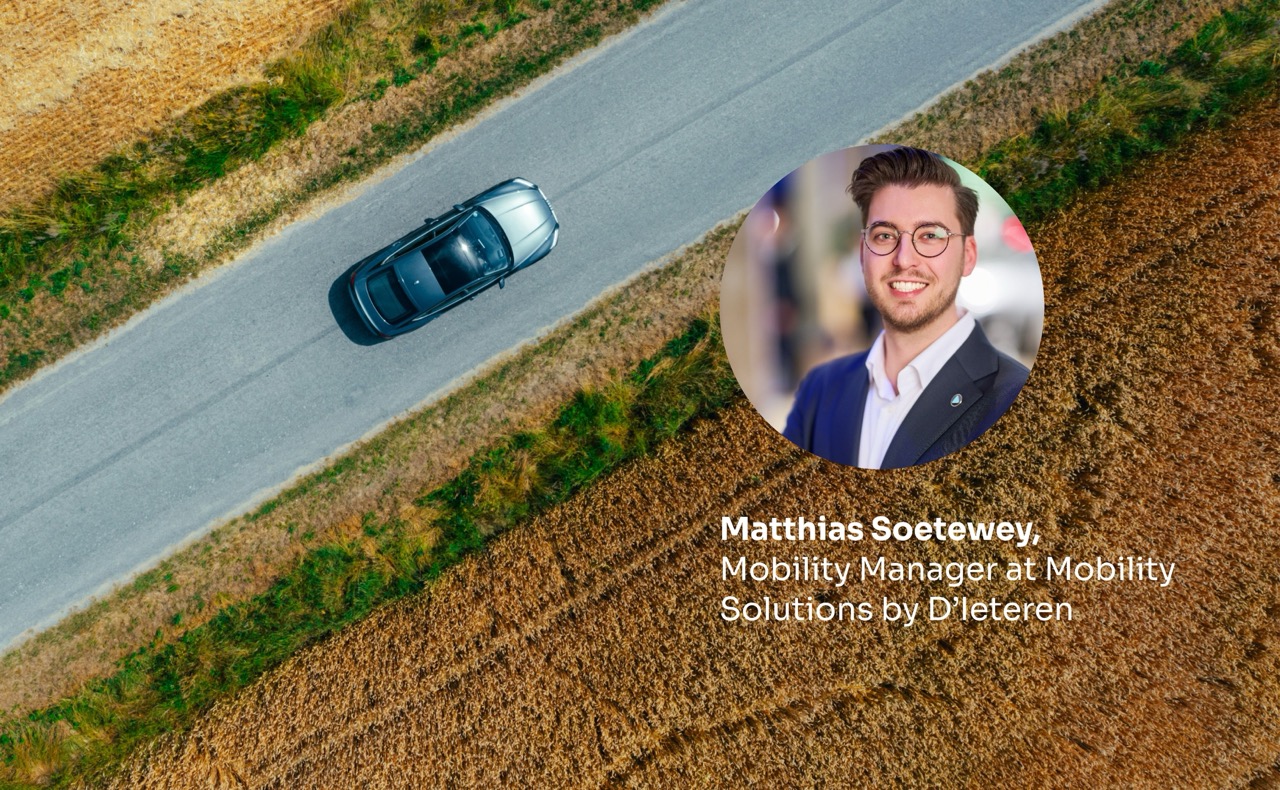Being a Fleet Manager in the new era of corporate mobility


.svg)
Fleet and HR managers in Belgium are entering a new phase of corporate mobility; one where electric cars are the norm, charging has become part of payroll, and mobility budgets are reshaping employee expectations.
Most companies are technically ready for the switch to electric, but few are operationally ready for what comes next: managing energy, data, and people all at once.
That’s what Matthias, Corporate Mobility Consultant at Mobility Solutions by D’Ieteren (MSBD), sees every day while helping companies in Antwerp transition their fleets. “The real challenge isn’t electrification itself,” he says. “It’s managing all the new moving parts that come with it.”
From managing vehicles to managing mobility
"When I started in the automotive industry ten years ago, fleet management was about volume and discounts," Matthias says. "Today, it's about understanding electricity, charging, and fiscal strategy."
D'Ieteren's Mobility Solutions department was created to work across all its brands (Audi, Volkswagen, Škoda, Porsche, Cupra) and across all its services, from leasing (VDFin) to mobility apps like MyMove and partners such as Mbrella.
"Yes we still talk about cars," Matthias explains. "But we increasingly also talk about complementary mobility services: mobility budgets, company bikes, charging solutions. Our job is to connect clients to the right partners so their people can move easily."
This evolution means fleet management now sits at the intersection of HR, finance, and sustainability. Mobility has become part of the benefits package—not just a tool for getting from A to B.
Electrification is the new normal
For corporate fleets, the shift to electric is now a financial necessity. Fully electric cars in Belgium jumped by 93.6% in 2023. And of those, 80.8% were registered by companies (i.e., fleets)
"With today's fiscal rules, offering petrol or diesel cars is simply too expensive," Matthias says. "Almost every company we work with is going 100% electric."
But what happens once employees make the switch?
"That's the interesting part," Matthias adds. "Once people start driving electric, 99% don't want to go back. At first, they choose EVs for financial reasons. Then they stay for comfort—the silence, the smoothness, the calm."
Concerns about autonomy range are also fading fast. EVs are here to stay.
"Most of our models today do over 500 kilometers on a single charge. Some go beyond 700 km. That's basically the same as petrol," he says. "A few years ago, driving from Belgium to the South of France meant hunting for a charger. Now there's one roughly every 50 to 100 km."
New skills for fleet manager
Managing a fleet today is turning into some kind of swiss knife.
"You have to be a bit of everything: an HR manager, a technical specialist, an accountant, and now an energy expert," Matthias says.
Fleet managers are suddenly expected to explain energy tariffs, charging reimbursements, and home installation rules to their employees. The Alphabet “European Fleet Emission Monitor 2025” noted that 34% of companies still don’t monitor their fleet’s CO₂ emissions at all (source) These sources suggest that while many fleet managers recognise the importance of sustainable mobility, the capability to act (data, energy knowledge, systems) is still catching up.
Matthias emphasises the operational need:
“You must understand what a dynamic tariff is, what a kWh costs, how reimbursement works. That’s energy management, not fleet management.”
This is where platforms like Mbrella Charge help by automating home and public charging reimbursements and bringing clarity to an area that often causes confusion.
People don’t fear change
Matthias has spent years guiding companies through EV transitions, and his biggest lesson is more human than technical:
"Belgians aren't afraid of change. They're afraid of uncertainty. Once you help them understand the advantages and take away the uncertainty, the change itself goes very smoothly."
That means communication is everything. Companies that invest time in explaining, listening, and training make the transition faster with less resistance. Recently, D'Ieteren and Mbrella co-hosted Lunch & Learn sessions where clients shared experiences and challenges about electrifying their fleets.
"It’s such a win-win," Matthias says. "Everyone from clients to consultants to us, learned from each other. That's how this ecosystem grows."



